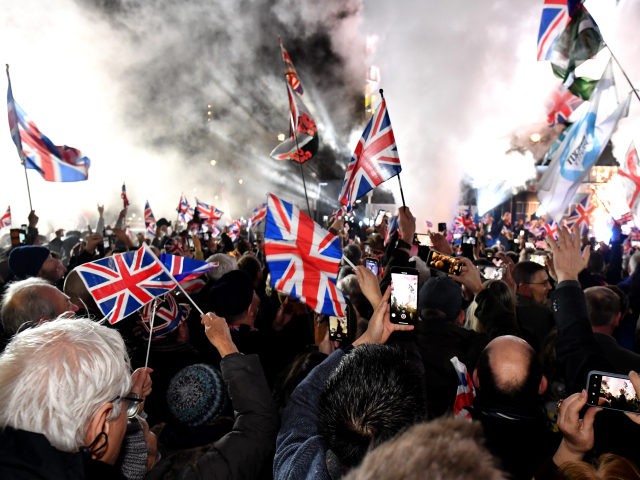Chief Brexit negotiator David Frost has blamed Brussels for the ongoing tensions with London, remarking that the bloc is struggling to accept “the existence of a genuinely independent actor in their neighbourhood”.
Lord Frost made the comments during to a House of Lords committee on the European Union on Tuesday, in light of several emerging issues Brexit Britain has experienced with the bloc, adding that he had been told informally that Brussels is expecting to ask for an extension to ratify the UK-EU trade agreement.
While the deal came into effect on January 1st, it is yet to be officially endorsed by the bloc’s member states and the European Parliament, and in the meantime, the deal is in force only on a provisional basis. The British parliament has already agreed to the document.
The British diplomat said, according to the BBC, that Brexit Britain wanted “friendly cooperation between sovereign equals as our vision of the future”.
However, he said: “I don’t think it has been quite the experience of the last few weeks, if we are honest about it.”
“I think the EU is still adjusting somewhat, as we thought they might, to the existence of a genuinely independent actor in their neighbourhood,” Mr Frost added.
The adviser to Prime Minister Boris Johnson outlined issues such as the head of the EU’s executive arm, European Commission President Ursula von der Leyen, imposing and then withdrawing an internal border on the island of Ireland to stop the alleged threat of EU vaccines crossing the border into the UK.
The move would have threatened the Belfast Agreement — an arrangement that for four years, Eurocrats demanded not be put at risk post-Brexit — and which was heavily criticised within bloc’s diplomatic circle, with one representative calling for von der Leyen to resign.
The EU is also offended that Britain has declined to give its overseas mission to the UK the same status as that of a sovereign state, which the Foreign Office reportedly said would set a precedent for other global organisations to demand rights such as diplomatic immunity for their ambassadors and embassies.
The drama had allegedly resulted in the bloc postponing a meeting between British representatives and EU officials in Brussels, though sources told the media that Britain had asked for no such introduction in the first place.
Further acts by Europeans — including the bloc banning the import of British shellfish and French President Emmanuel Macron claiming that the UK’s Oxford-AstraZeneca vaccine was only “quasi-effective” for older people — had also increased tensions.
“I hope we will get over this. It is going to require a different spirit, probably, from the EU, but I am sure we are going to see that and some of this subside as we go forward,” Mr Frost said on Tuesday.
Frost also said that he had “heard informally from the commission today that we are likely to get a formal request to extend the two-month period that is in the treaty for ratification on the EU side”, with a European Commission spokesman confirming that day the bloc had agreed to extend the ratification period until the end of April.
Another ongoing issue is the wider problem that the European Union is having with producing vaccinations for the hundreds of millions of residents in the bloc.
With excessive bureaucracy at fault for the delays, von der Leyen and her Commission have sought to punish Britain, threatening to stop the export of vaccines produced in Europe under contract for the UK, and even demanding that doses made in the UK be sent to the Continent to make up for their shortfall.
Brexit leader and Reform UK head Nigel Farage said that the moves by the “nasty” and “vindictive” EU are proof that the UK was right to leave the bloc.

COMMENTS
Please let us know if you're having issues with commenting.